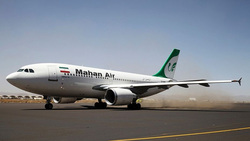Kurdish diaspora milestone: University in Germany set to launch in 2026

Shafaq News/ A Kurdish university is set to open its doors in Germany in 2026, marking what organizers describe as a “groundbreaking moment” for Kurdish-language higher education beyond Kurdistan's borders.
Preparations are already underway, with founding teams forming expert committees, drafting budgets, and building the academic infrastructure. Full operations are expected to launch in 2026, pending final legal and administrative approvals.
The university will primarily teach in Kurdish—offering courses in both Kurmanji and Sorani dialects—while German and English will serve as supplementary languages. Initial programs will focus on Kurdish language and literature, social sciences, and engineering.
Admissions will target students from Rojava (northeastern Syria) and the Kurdistan Region of Iraq, requiring a high school diploma and successful completion of an online entrance exam. Degrees will be accredited and aligned with European academic standards, enabling graduates to pursue further study or employment internationally.
A central aim of the institution is to help standardize academic Kurdish across dialects, strengthening linguistic unity and cultural identity within the global Kurdish community. Organizers view this as both a “pedagogical and symbolic step” toward preserving and advancing Kurdish heritage.
Dr. Younes Bahram, who leads the Deutsch-Kurdisches Forum e.V.—the organization spearheading the project—underscored the long-term significance, stating, “Years ago, when we introduced Kurdish in primary schools, families would ask, ‘Where can our children continue this at the university level?’ Now, we’re building that answer.”
Germany is home to roughly 1.2 million Kurds, one of the largest Kurdish communities in the diaspora, with roots in Turkiye, Syria, Iraq, and Iran. Many arrived as guest workers in the 1960s, while others sought refuge from war and repression.
Over time, Kurds in Germany have cultivated a robust civic sphere, establishing hundreds of organizations focused on culture, education, and human rights. Despite enduring restrictions on Kurdish identity in parts of the Middle East, their contributions to German society—particularly in politics, media, and the arts—continue to expand.





